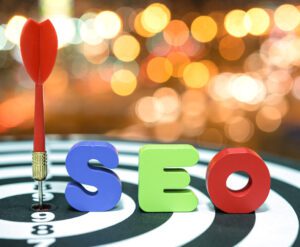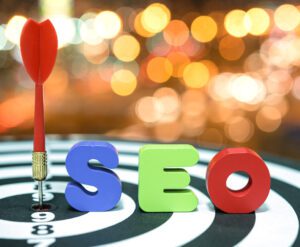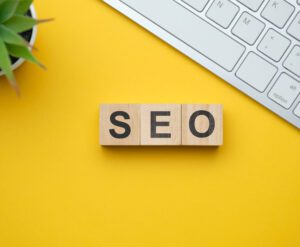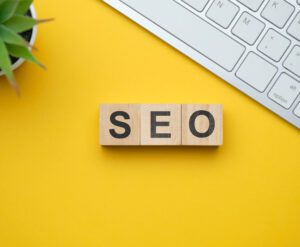Lead generation is one of the most important aspects of marketing and sales. Businesses would struggle to develop, expand, and generate revenue without leads. In recent years, the emergence of AI (AI) has revolutionized the lead generation process. AI-powered lead generation solutions can assist businesses in identifying, engaging, and nurturing leads on a large scale, enabling organizations to connect with more prospects more quickly and efficiently. So, whether you’re a marketer, salesperson, or business owner, prepare to learn how AI can elevate your lead-generation efforts.
In any business, generating more leads increases the likelihood of conversion. Traditional methods for gathering these leads have proven effective, but it’s time to take lead generation to the next level with artificial intelligence. Artificial intelligence (AI) is not a novel concept, but it has proven invaluable in lead generation. Specifically, lead generation has increasingly relied on AI for B2B marketing strategies that deliver phenomenal results.
There are numerous ways that anyone, regardless of skill level, can utilize AI in their lead generation campaigns to achieve astounding results, even though it may appear complex. In this article, we will discuss the function of artificial intelligence in lead generation and its benefits to businesses of all sizes.
Understanding AI basics for lead generation
AI is the development of intelligent machines capable of learning, making decisions, and solving problems. AI automates and optimizes multiple lead generation processes, such as data analysis, lead scoring, and lead nurturing. Businesses can get insights into their target audience, predict future behavior, and prioritize leads based on their potential value by leveraging AI.
Understanding the different technologies and tools used to help AI-powered lead generation is also a part of learning the basics of AI in lead generation. This includes machine learning algorithms, processing natural language, and predictive analytics. These technologies work together to analyze vast amounts of data, identify patterns, and predict which leads are most likely to convert. By understanding the basics of AI in lead generation, businesses can gain a deeper appreciation for how AI can be leveraged to improve their lead generation efforts and achieve better results.
Why is AI important in lead generation?
Software and tools that use AI platforms and other algorithms function by collecting and analyzing data, keeping track of sales records, and using various marketing strategies to improve technologies like CRMs. AI has made handling customers easier, getting better sales insights, and connecting with others. This gives valuable business information that can be used to make decisions that will improve ROI and ROAS.
AI makes it possible for lead creation tools to learn and make predictions. For example, you can use AI and machine learning to find and target big groups of people who look like your ideal customers. Because the AI has seen and analyzed the patterns in your traditional audiences, it can give you insights and information about leads that best fit your narrative.
In short, AI makes it easier to find leads by removing a lot of the headaches and problems that come with it. It’s like having an analyst on your team who looks for patterns and ideas without having to hire anyone.
How AI is changing the way leads are generated
AI is changing how leads are generated in several significant ways. Here are just a few examples:
Data-driven approach: AI allows businesses to analyze vast amounts of data to identify patterns and insights that inform lead-generation efforts. This data-driven approach leads to more effective and targeted lead generation than traditional methods that rely on intuition and guesswork.
Automation: AI can automate many manual, time-consuming tasks associated with lead generation, such as data analysis, lead scoring, and lead nurturing. This allows businesses to operate more efficiently and focus on higher-value activities.
Personalization: AI-powered lead nurturing solutions can personalize interactions with leads, based on their previous interactions and behavior. This helps build stronger relationships and increases the likelihood of conversion.
Predictive analytics: AI can use predictive analytics to predict which leads are most likely to convert based on behavior, demographics, and previous interactions. This helps businesses prioritize their lead-generation efforts and achieve better results.
Improved customer experience: AI can help businesses provide a more personalized and seamless customer experience by anticipating their needs and offering customized recommendations and solutions.
These are just a few ways AI is changing how leads are generated. By leveraging the power of AI, businesses can generate leads more efficiently and effectively and personalize their approach to better engage with their target audience and achieve better results.
AI-powered lead generation tools and solutions
AI-powered lead generation tools and solutions refer to the various technologies and platforms that use AI to automate and optimize different lead generation processes. These tools and solutions are designed to help businesses generate leads more efficiently and effectively by leveraging the power of AI to analyze vast amounts of data and make predictions about which leads are most likely to convert. Some examples of AI-powered lead generation tools and solutions include:
Chatbots: AI-powered chatbots can interact with leads in real-time, answering questions, providing recommendations, and guiding them toward conversion.
Lead scoring and prioritization: AI-powered lead scoring and prioritization tools can analyze large amounts of data to identify the most promising leads based on behavior, demographics, and previous interactions.
Lead nurturing: AI-powered lead nurturing solutions can automate and personalize lead nurturing processes, such as email marketing and follow-up, based on the behavior and preferences of each lead.
Predictive analytics: AI-powered predictive analytics tools can analyze large amounts of data to predict which leads are most likely to convert, allowing businesses to prioritize their lead-generation efforts and achieve better results.
Customer segmentation: AI-powered tools can help businesses understand their target audience and segment their leads based on behavior, demographics, and previous interactions.
These are just a few examples of AI-powered lead-generation tools and solutions. These technologies allow businesses to automate and optimize various lead generation processes, generate higher-quality leads, and achieve better results.
The Impact of AI on lead generation metrics
The impact of AI on lead-generation metrics can be significant and help businesses measure the success of their lead-generation efforts and make data-driven decisions. For students looking for assignment help, understanding the impact of AI on lead generation metrics can be crucial for success in marketing and business courses. Here are just a few of the ways that AI can impact lead generation metrics:
Increased efficiency:
AI can automate many manual, time-consuming tasks associated with lead generation, such as data analysis, lead scoring, and lead nurturing. This increased efficiency can be seen in metrics such as time-to-conversion and cost-per-lead.
Improved lead quality:
AI can analyze large amounts of data to identify the most promising leads based on behavior, demographics, and previous interactions. This improved lead quality can be seen in conversion rates and customer lifetime value metrics.
Better targeting:
AI can give businesses deep insights into their target audience, allowing them to tailor their marketing and sales efforts to each lead’s specific needs and preferences. This improved targeting can be reflected in click-through and engagement rates.
Increased ROI:
By using AI to generate higher-quality leads and personalize interactions, businesses can achieve a higher return on investment from their lead generation efforts. This increased ROI can be reflected in cost-per-acquisition and customer acquisition cost metrics.
These are just a few strategies in which AI can influence lead generation metrics. Using AI, businesses can optimize their lead generation efforts, make decisions based on data, measure their success, and perpetually improve their results.








